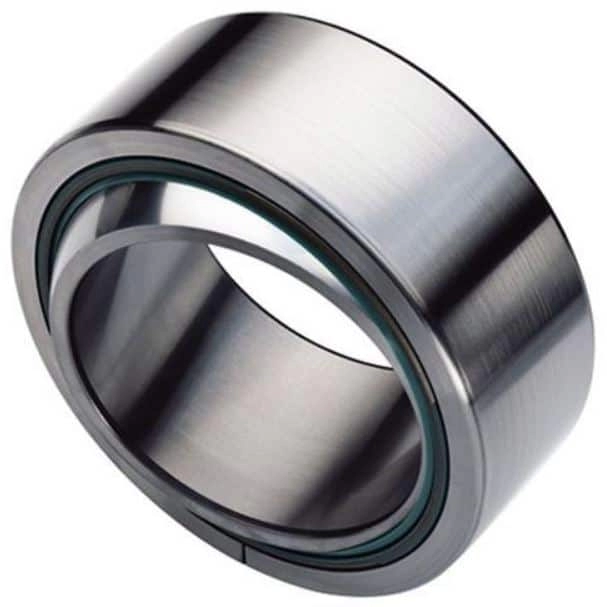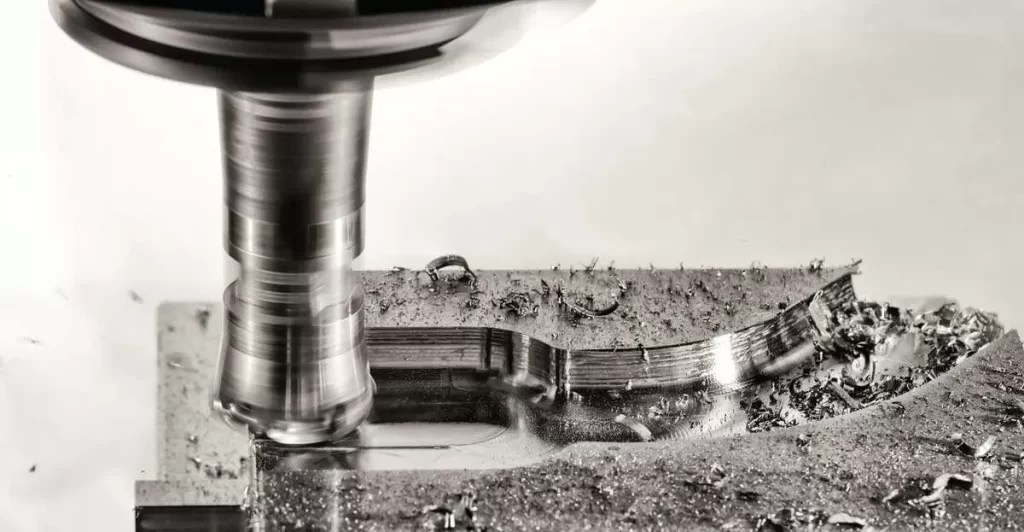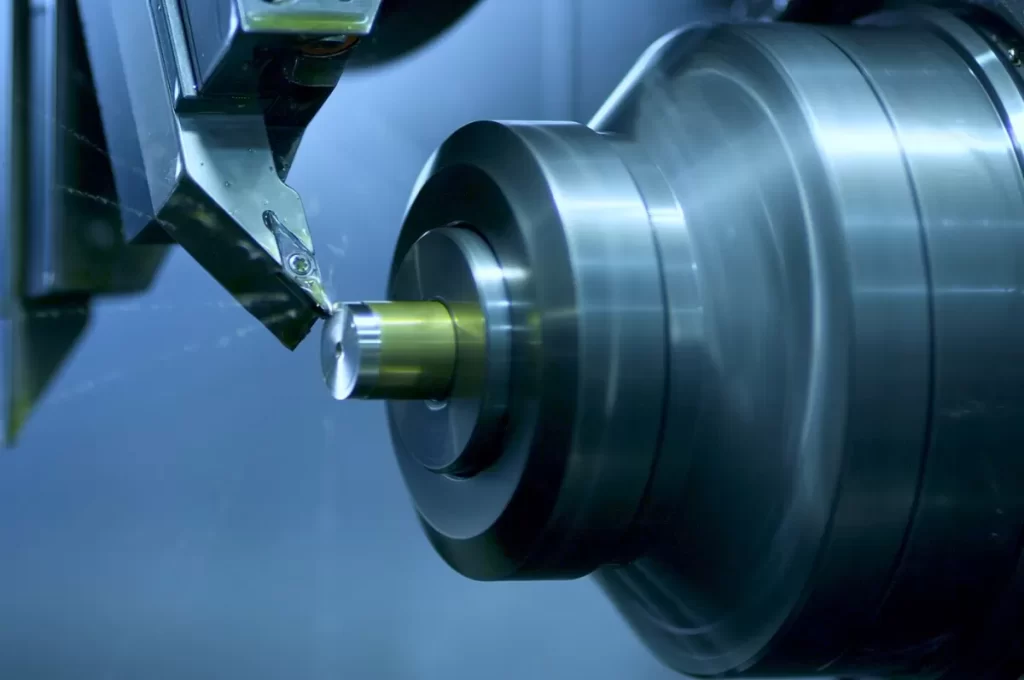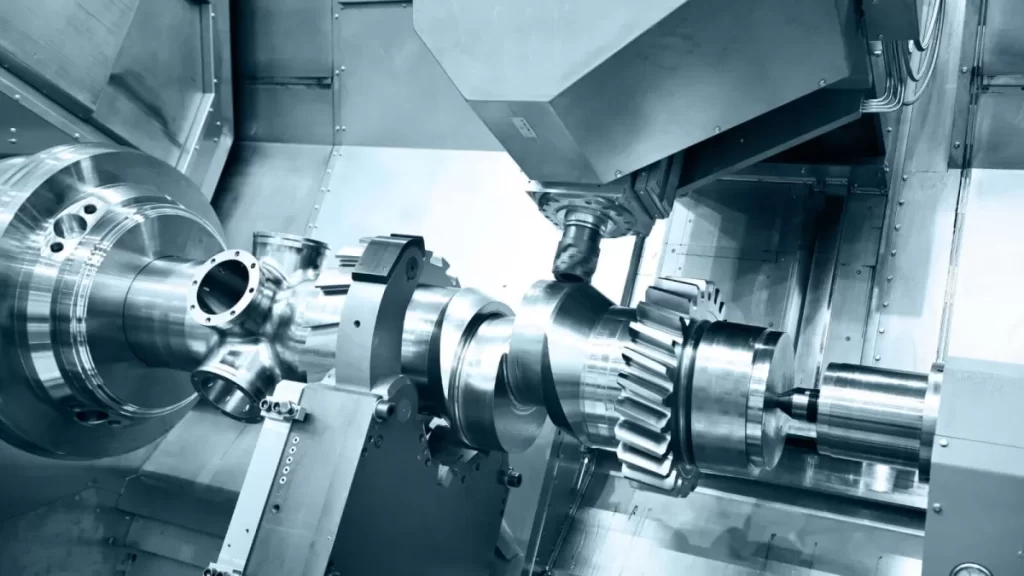What Are Bearings and Their Role in CNC Systems
Bearings are mechanical components designed to reduce friction between moving parts and support smooth motion. In CNC (Computer Numerical Control) systems, bearings play a crucial role by enabling precise and efficient movement of machine elements like spindles, motors, and linear guides.
The key functions of bearings in CNC machines include:
- Supporting rotating components such as spindles and shafts
- Reducing wear and tear by minimizing friction between moving parts
- Maintaining alignment and stability during high-speed operations
Bearings directly impact the precision, speed, and durability of CNC machines. Proper selection and maintenance of bearings help ensure accurate machining, smoother motion, and longer machine life, all of which are vital for high-quality production and efficient CNC performance.
Main Types of Bearings Used in CNC Machining

Ball Bearings
Ball bearings are one of the most common types used in CNC machines. They have a simple design with deep groove or angular contact structures that let them handle both radial and axial loads. Their main advantages are high-speed capability and low friction, which make them perfect for spindles and motors. At HYCNC, we offer ball bearing solutions designed for precision machining, ensuring smooth and reliable operation in your CNC systems.
Roller Bearings
Roller bearings come in several types like cylindrical, tapered, and needle rollers. These bearings excel in handling higher loads and offer great durability. They’re commonly used in heavy-duty CNC equipment such as milling machines and lathes where strength is key. HYCNC provides a range of roller bearing options to support these demanding applications and boost your machine’s longevity.
Plain Bearings and Bushings
Plain bearings, or bushings, have a straightforward design without rolling elements. They are cost-effective and require less maintenance, which is why they’re popular in CNC parts that operate at lower speeds but bear high loads. These bearings are ideal for applications needing simple, tough support without complicated servicing.
Thrust Bearings
Thrust bearings are built specifically to handle axial loads, which are forces along the shaft. They come as ball thrust or roller thrust types, and in CNC machines, they’re essential for supporting axial forces in spindles. Using the right thrust bearing helps maintain CNC spindle stability and accuracy.
Slewing Ring Bearings
Slewing ring bearings are large and designed to manage heavy rotational movements. They’re commonly used in CNC turntables and rotary tables where smooth, precise movement is critical. These bearings support big loads and maintain accuracy in large-scale CNC setups.
Specialty Bearings
Specialty bearings like ceramic or linear motion types offer unique benefits such as high precision and corrosion resistance. These are perfect for CNC machines running at high speeds or operating in harsh environments. HYCNC’s specialty bearing solutions are tailored to meet the specific challenges of these advanced applications, delivering performance and durability.
At HYCNC, we understand the different types of bearings your CNC machine needs and provide options that match your specific machining requirements. Whether you need precision ball bearings or rugged roller bearings, we have you covered.
Choosing the Right Bearing for Your CNC Machine
Picking the right bearing for your CNC machine boils down to a few key factors: the load it needs to handle, the speed it will run at, and the environment it works in. For example, high-speed spindles need bearings that can handle fast rotations with minimal friction, while heavy-duty parts require bearings built for high loads and durability. If your machine operates in harsh or corrosive environments, you’ll need bearings with special coatings or materials to keep things running smoothly.
At HYCNC, we understand these challenges. We work closely with our customers to match the best bearing options to their specific CNC setups. Whether you need ball bearings for precision or roller bearings for heavy milling, we guide you through the selection process to make sure your equipment performs reliably.
Here’s a quick comparison table to help illustrate how different bearing types fit with CNC applications:
| Bearing Type | Speed | Load Capacity | Typical CNC Use | Cost |
|---|---|---|---|---|
| Ball Bearings | High | Moderate | Spindles, Motors | Moderate |
| Roller Bearings | Moderate | High | Heavy Milling, Lathes | Higher |
| Plain Bearings | Low | High | Low-speed, High Load | Low |
| Thrust Bearings | Moderate | Axial Loads | Spindle Axial Support | Moderate |
| Slewing Bearings | Low to Moderate | Very High | Rotary Tables, Turntables | High |
This clear overview helps you quickly identify which bearing suits your CNC operations best. With HYCNC’s expertise, you’ll get reliable recommendations tailored to your machining needs, budget, and operating conditions, ensuring better performance and longer machine life.
Benefits of Using HYCNC Bearings
When it comes to CNC machining, you want bearings you can trust. HYCNC bearings are precision-engineered to deliver reliable performance, helping your machines run smoothly and last longer. These bearings are designed with the specific demands of CNC systems in mind, ensuring high accuracy and consistent speed.
We understand that every CNC setup is different. That’s why HYCNC offers customization options to fit your exact needs—whether it’s adjusting dimensions, materials, or load capacities. This flexibility ensures the bearings meet your machine’s unique requirements and improve overall efficiency.
Quality is a top priority at HYCNC. Our bearings come with strict quality assurance checks and comply with industry certifications, giving you peace of mind about durability and safety. You’re getting a product built to meet tough standards, made to withstand the challenges of industrial CNC environments.
Take a recent case where a U.S.-based manufacturing client switched to HYCNC bearings for their high-speed CNC spindle. They saw a noticeable improvement in precision and a drop in maintenance downtime. This kind of real-world success shows how investing in the right bearings makes a difference in performance and cost savings.




